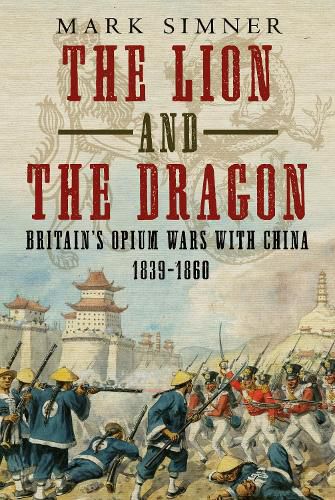Readings Newsletter
Become a Readings Member to make your shopping experience even easier.
Sign in or sign up for free!
You’re not far away from qualifying for FREE standard shipping within Australia
You’ve qualified for FREE standard shipping within Australia
The cart is loading…






During the middle of the 19th-Century, Britain and China would twice go to war over trade, and in particular the trade in opium. The Chinese people had progressively become addicted to the narcotic, a habit that British merchants were more than happy to feed from their opium-poppy fields in India. When the Qing dynasty rulers of China attempted to supress this trade–due to the serious social and economic problems it caused–the British Government responded with gunboat diplomacy, and conflict soon ensued. The first conflict, known as the First Anglo-Chinese War or Opium War (1839-42), ended in British victory and the Treaty of Nanking. However, this treaty was heavily biased in favour of the British, and it would not be long before there was a renewal of hostilities, taking the form of what became known as the Second Anglo-Chinese War or Arrow War (1857-60). Again, the second conflict would end with an ‘unequal treaty’ that was heavily biased towards the victor. ‘The Lion and the Dragon: Britain’s Opium Wars with China, 1839-1860’ examines the causes and ensuing military history of these tragic conflicts, as well as their bitter legacies.
$9.00 standard shipping within Australia
FREE standard shipping within Australia for orders over $100.00
Express & International shipping calculated at checkout
During the middle of the 19th-Century, Britain and China would twice go to war over trade, and in particular the trade in opium. The Chinese people had progressively become addicted to the narcotic, a habit that British merchants were more than happy to feed from their opium-poppy fields in India. When the Qing dynasty rulers of China attempted to supress this trade–due to the serious social and economic problems it caused–the British Government responded with gunboat diplomacy, and conflict soon ensued. The first conflict, known as the First Anglo-Chinese War or Opium War (1839-42), ended in British victory and the Treaty of Nanking. However, this treaty was heavily biased in favour of the British, and it would not be long before there was a renewal of hostilities, taking the form of what became known as the Second Anglo-Chinese War or Arrow War (1857-60). Again, the second conflict would end with an ‘unequal treaty’ that was heavily biased towards the victor. ‘The Lion and the Dragon: Britain’s Opium Wars with China, 1839-1860’ examines the causes and ensuing military history of these tragic conflicts, as well as their bitter legacies.